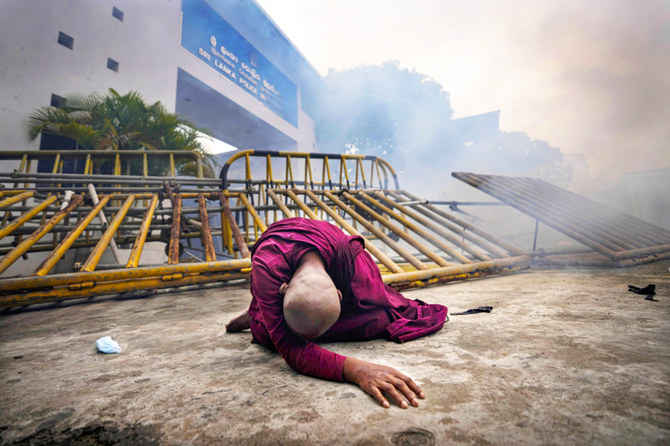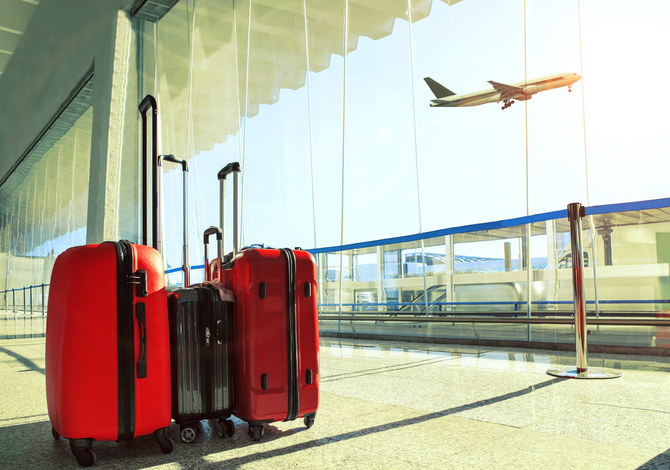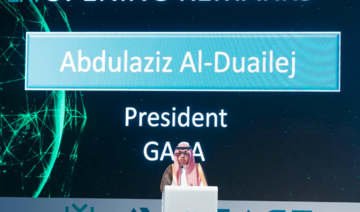COLOMBO, Sri Lanka: Sri Lanka’s prime minister says the island nation’s debt-laden economy has “collapsed” as it runs out of money to pay for food and fuel. Short of cash to pay for imports of such necessities and already defaulting on its debt, it is seeking help from neighboring India and China and from the International Monetary Fund.
Prime Minister Ranil Wickremesinghe, who took office in May, was emphasizing the monumental task he faces in turning around an economy he said is heading for “rock bottom.”
Sri Lankans are skipping meals as they endure shortages, lining up for hours to try to buy scarce fuel. It’s a harsh reality for a country whose economy had been growing quickly, with a growing and comfortable middle class, until the latest crisis deepened.
How serious is this crisis?
Tropical Sri Lanka normally is not lacking for food but people are going hungry. The UN World Food Program says nearly nine of 10 families are skipping meals or otherwise skimping to stretch out their food, while 3 million are receiving emergency humanitarian aid.
Doctors have resorted to social media to try to get critical supplies of equipment and medicine. Growing numbers of Sri Lankans are seeking passports to go overseas in search of work. Government workers have been given an extra day off for three months to allow them time to grow their own food. In short, people are suffering and desperate for things to improve.
Why is the economy in such dire straits?
Economists say the crisis stems from domestic factors such as years of mismanagement and corruption, but also from other troubles such as a growing $51 billion in debt, the impact of the pandemic and terror attacks on tourism, and other problems.
Much of the public’s ire has focused on President Gotabaya Rajapaksa and his brother, former Prime Minister Mahinda Rajapaksa. The latter resigned after weeks of anti-government protests that eventually turned violent.
Conditions have been deteriorating for the past several years. In 2019, Easter suicide bombings at churches and hotels killed more than 260 people. That devastated tourism, a key source of foreign exchange.
The government needed to boost its revenues as foreign debt for big infrastructure projects soared, but instead Rajapaksa pushed through the largest tax cuts in Sri Lankan history, which recently were reversed. Creditors downgraded Sri Lanka’s ratings, blocking it from borrowing more money as its foreign reserves sank. Then tourism flatlined again during the pandemic.
In April 2021, Rajapaksa suddenly banned imports of chemical fertilizers. The push for organic farming caught farmers by surprise and decimated staple rice crops, driving prices higher. To save on foreign exchange, imports of other items deemed to be luxuries also were banned. Meanwhile, the Ukraine war has pushed prices of food and oil higher. Inflation was near 40 percent and food prices were up nearly 60 percent in May.
Why did the prime minister say the economy has collapsed?
Such a stark declaration might undermine any confidence in the state of the economy and it didn’t reflect any specific new development. Wickremesinghe appeared to be underscoring the challenge his government faces in turning things around as it seeks help from the IMF and confronts criticism over the lack of improvement since he took office weeks ago. He’s also fending off criticism from within the country. His comment might be intended to try to buy more time and support as he tries to get the economy back on track.
The Finance Ministry says Sri Lanka has only $25 million in usable foreign reserves. That has left it without the wherewithal to pay for imports, let alone repay billions in debt.
Meanwhile the Sri Lankan rupee has weakened in value by nearly 80 percent to about 360 to $1. That makes costs of imports even more prohibitive. Sri Lanka has suspended repayment of about $7 billion in foreign loans due this year out of $25 billion to be repaid by 2026.
What is the government doing about it?
Wickremesinghe has ample experience. This latest is his sixth term as prime minister.
So far, Sri Lanka has been muddling through, mainly supported by $4 billion in credit lines from neighboring India. An Indian delegation was in the capital Colombo on Thursday for talks on more assistance, but Wickremesinghe warned against expecting India to keep Sri Lanka afloat for long.
“Sri Lanka pins last hopes on IMF,” said Thursday’s headline in the Colombo Times newspaper. The government is in negotiations with the IMF on a bailout plan and Wickremesinghe said Wednesday he expects to have a preliminary agreement with the IMF by late July.
The government also is seeking more help from China. Other governments like the US, Japan and Australia have provided a few hundred million dollars in extra support.
Earlier this month, the United Nations began a worldwide public appeal for assistance. So far, projected funding barely scratches the surface of the $6 billion the country needs to stay afloat over the next six months.
To counter Sri Lanka’s fuel shortage, Wickremesinghe told The Associated Press in a recent interview that he would consider buying more steeply discounted oil from Russia to help tide the country through its crisis.




















